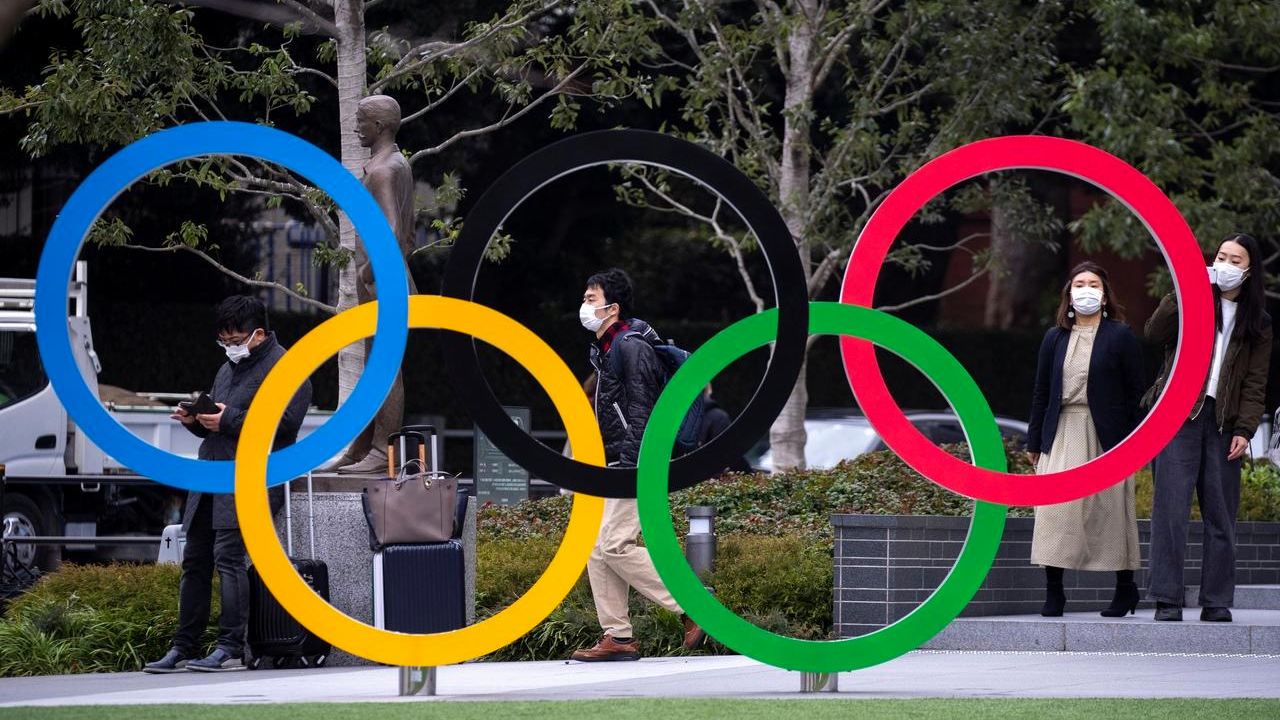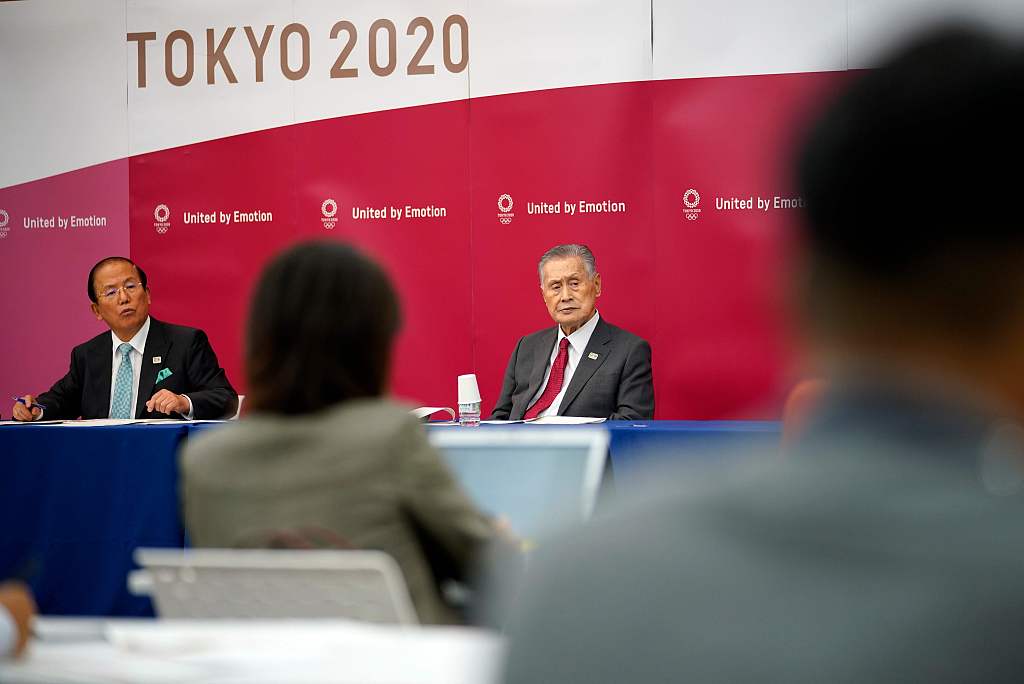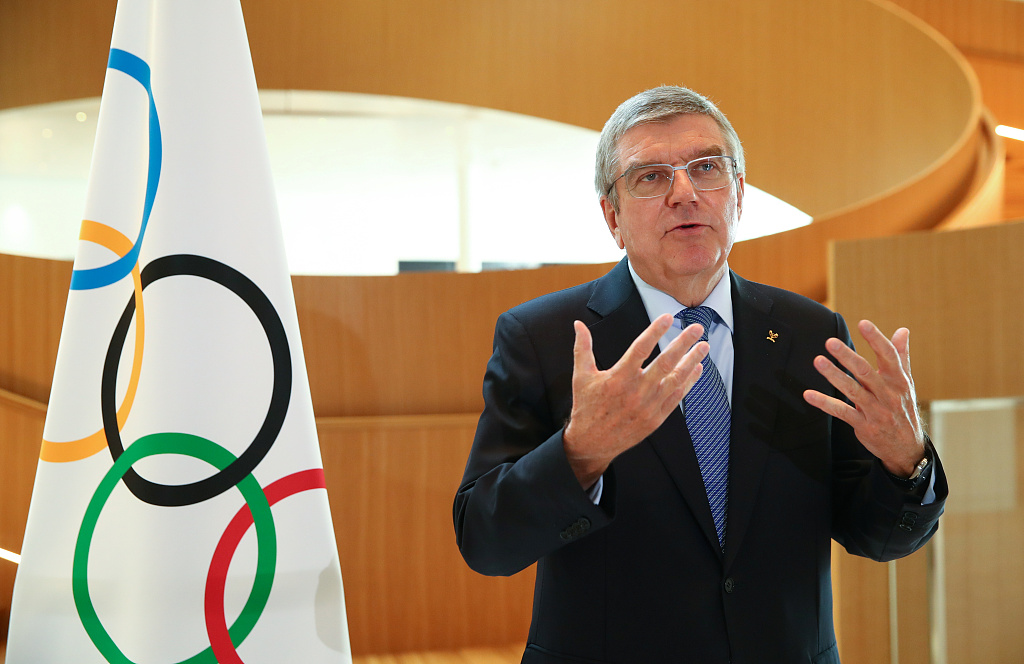
People wearing protective face masks are seen next to the Olympic rings in front of the Japan Olympic Museum in Tokyo, Japan, February 26, 2020. /Reuters
People wearing protective face masks are seen next to the Olympic rings in front of the Japan Olympic Museum in Tokyo, Japan, February 26, 2020. /Reuters
The Tokyo 2020 organizing committee said Wednesday that they have agreed with the International Olympic Committee to hold a "simplified" games next summer.
In a press conference following the online meeting with the IOC, Tokyo 2020 CEO Toshiro Muto said that the IOC and local organizers had identified 200 items where simplification would be possible.
When asked about the possibility of the games being called off entirely due to the coronavirus pandemic, Tokyo Olympic organizing committee President Yoshiro Mori said the local organizers and IOC had "never discussed cancellation."
The goals to streamline hosting the event are to battle "the biggest challenge" thrust upon the organizing committee, safety issues amid the coronavirus pandemic, and reducing cost.
According to Muto, there are three central principles for the postponed Olympics – providing a safe and secure environment, minimizing costs to gain the understanding of Tokyo residents and the wider public, and simplifying the games for the sake of safety and sustainability.

Tokyo Games organizing committee President Yoshiro Mori (R) and the organizing committee's CEO Toshiro Muto hold a press conference in Tokyo, Japan, June 10, 2020. /VCG
Tokyo Games organizing committee President Yoshiro Mori (R) and the organizing committee's CEO Toshiro Muto hold a press conference in Tokyo, Japan, June 10, 2020. /VCG
The reductions are likely to happen in areas such as number of spectators, numbers of IOC officials and representatives from national sporting bodies at the games, the opening and closing ceremonies, as well as the torch relay scheduled to fall between March to July next year.
Reducing spectators would no doubt hurt Japan's economy, considering the total amount of budget needed to host the Summer Olympics.
Earlier in May, the IOC decided to spend up to 800 million U.S. dollars for extra costs arising from the one-year postponement of the Tokyo Olympics, on top of the 12.6 billion U.S. dollars Japan had already spent on preparation of the games.
IOC president Thomas Bach explained that a sum of 650 million U.S. dollars would be available for the IOC's share of organizing the postponed Olympics amid the COVID-19 crisis. The remaining 150 million U.S. dollars is set to be split into loans for international sports federations and national Olympic committees.
Bach said in an interview after the meeting that "it would be wrong to reduce the number of athletes."
"We can simplify and reduce the cost of the games. That is our full concentration."

IOC president Thomas Bach attends an interview after the decision to postpone the Tokyo 2020 in Lausanne, Switzerland, March 25, 2020. /VCG
IOC president Thomas Bach attends an interview after the decision to postpone the Tokyo 2020 in Lausanne, Switzerland, March 25, 2020. /VCG
The local organizing committee will review each item on the list and the IOC's Coordination Commission is expected to make a final proposal at the IOC executive board meeting in September after holding discussions with international sports federations.
The Tokyo Olympic Games, which were originally scheduled to start in July 2020, were postponed by a year in March due to the coronavirus pandemic. The games are due to start on July 23, 2021.
(With input from agencies)